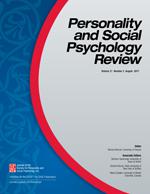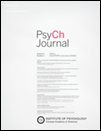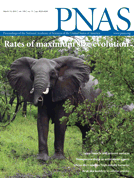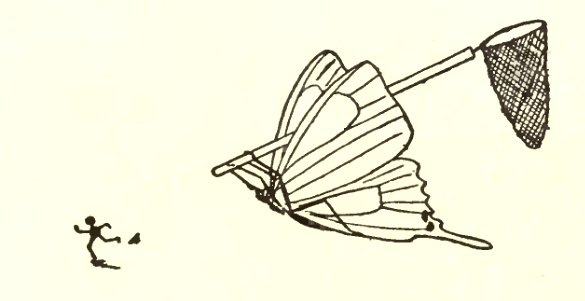What Caught Our Attention: At times we get to just appreciate the moment: A paper focused on repetition — specifically, linking repeated exposure to travel videos and actual visits to the location — got retracted for duplication. The notice says the duplications were “inadvertent;” perhaps these researchers were motivated by their research? This isn’t the first time authors have been tripped up by their own subjects — in 2015, a researcher retracted his guidelines on plagiarism for…you guessed it. (Plagiarism.) Continue reading Caught Our Notice: An article about repetition is duplicated? Priceless
Category: psychology
RAND re-releases withdrawn report modelling child mistreatment
 A think tank has re-issued a report on child welfare in the U.S., six months after it pulled the document amidst criticism from dozens of researchers.
A think tank has re-issued a report on child welfare in the U.S., six months after it pulled the document amidst criticism from dozens of researchers.
The report offered policy recommendations for improving the child welfare system, based on numerical modeling conducted by researchers at the RAND Corporation.
RAND pulled the initial version of the report in June, after researchers — including Richard Barth, dean of the University of Maryland’s school of social work and Emily Putnam-Hornstein, of the University of Southern California — criticized the model for underestimating the rate of maltreatment over a child’s lifetime.
The report, reissued Dec. 11, contains updates detailing how the RAND researchers addressed the criticism. However, Jeanne Ringel, a senior economist at RAND and the study’s lead author, told us: Continue reading RAND re-releases withdrawn report modelling child mistreatment
University requests 4th retraction for psychologist under fire

The University of Amsterdam has requested another retraction for a prominent social psychologist, after reviewing the dissertations he supervised while at the university.
The university made the announcement this week after reviewing the theses supervised by Jens Förster, whose own work has been subject to considerable scrutiny.
The results of this investigation come more than two years after an initial probe into Förster’s work, which found several of his papers likely contained unreliable data; three of these papers have been retracted and four have received expressions of concern. Förster, who recently left his position at Ruhr-Universität Bochum in Germany to start a private psychology practice, has always maintained that he did not manipulate his data. In 2015, he turned down a professorship, citing the toll the investigation had taken. Continue reading University requests 4th retraction for psychologist under fire
Caught Our Notice: 1,376 words of overlap in paper by food researcher Brian Wansink

Title: Change Their Choice! Changing Behavior Using the CAN Approach and Activism Research
What Caught Our Attention: Food researcher Brian Wansink has had a rough time lately. After researchers began scrutinizing his work, he has racked up five retractions and multiple corrections. (We’re counting one retracted paper twice, as Wansink first retracted and replaced it with a new version, then retracted the replacement.)
These notices haven’t gone unnoticed, either by us or other media outlets — BuzzFeed reported on his most recent retraction this weekend, a paper a critic discussed with us, as well. Yesterday, BuzzFeed also reported that Cornell is investigating. (It wouldn’t be the first time — in April, Cornell announced that it had found evidence of mistakes, not misconduct, in Wansink’s papers.) Below, we present his 13th correction, for duplicated text — 1,376 words of duplicated text, to be exact.
Continue reading Caught Our Notice: 1,376 words of overlap in paper by food researcher Brian Wansink
After losing two video game-violence papers, co-author’s weapons paper is flagged
 Can seeing a weapon increase aggressive thoughts and behaviors?
Can seeing a weapon increase aggressive thoughts and behaviors?
A meta-analysis on the so-called “weapons effect” has been flagged with an expression of concern by a SAGE journal, after the researchers discovered errors affecting at least one of the main conclusions.
The paper found that the presence of weapons increased people’s aggressiveness, but not feelings of anger. However, the corresponding author, Arlin James Benjamin, who works at University of Arkansas–Fort Smith, told us:
we would urge considerably more caution in interpreting the impact of weapons on behavioral outcomes based on those initial re-analyses.
Last author Brad Bushman, a professor of communication and psychology at the Ohio State University (OSU), was the corresponding author on two now-retracted papers linking video games and violence. Continue reading After losing two video game-violence papers, co-author’s weapons paper is flagged
Caught Our Notice: Reporter’s inquiry prompts financial disclosure in autism paper

What caught our attention: When journalist Brendan Borrell was investigating a controversial autism treatment program for Spectrum, he came across a study where lead author Kat Houghton failed to disclose a prior relationship with the treatment center that taught the program, called Son-Rise.
The Spectrum article notes:
Continue reading Caught Our Notice: Reporter’s inquiry prompts financial disclosure in autism paper
Boys will be boys: Data error prompts U-turn on study of sex differences in school
 The authors of a 2017 paper on emotional and behavioral gaps between boys and girls have retracted the article after discovering a coding error that completely undermined their conclusions.
The authors of a 2017 paper on emotional and behavioral gaps between boys and girls have retracted the article after discovering a coding error that completely undermined their conclusions.
The revelation prompted the researchers to republish their findings in the same journal, this time with a title that flips the narrative.
The PsychJournal study, first published in March, looked at self-regulation — loosely defined as the ability to get stuff done and keep a lid on it — in boys and girls in German elementary schools. Although previous studies had found girls might do better on this front, the authors, from the University of Leipzig and New York University’s Abu Dhabi campus, initially found the opposite:
Continue reading Boys will be boys: Data error prompts U-turn on study of sex differences in school
Are rich people meaner? While trying to find out, two teams find errors in each other’s work
 Is having money linked to bad behavior?
Is having money linked to bad behavior?
A high profile paper published in 2012 in the Proceedings of the National Academy of Sciences (PNAS) set out to answer that question — and found that yes, the more money people have, the more likely they are to lie, cheat, and steal. And the greedier they are, the worse they behave. But when a more recent paper tried to replicate some of those findings, it couldn’t.
It turns out, both the original paper and the paper that tried to replicate it contained errors. Although neither appear to affect the main conclusions, the authors of the 2016 replication recently issued a correction; the error in the 2012 paper was initially deemed too insignificant to correct, but the journal has decided to revisit the idea of issuing a correction.
A representative of PNAS told us that the replication paper — and reporting by Retraction Watch — is the reason why: Continue reading Are rich people meaner? While trying to find out, two teams find errors in each other’s work
“Right to be forgotten” takes down BMJ’s 15-year-old film review
 A subject in a documentary film about the psychology of religious ideation has pushed the BMJ to take down its review of the film, based on a complaint citing a European internet privacy rule.
A subject in a documentary film about the psychology of religious ideation has pushed the BMJ to take down its review of the film, based on a complaint citing a European internet privacy rule.
On July 3, BMJ posted a retraction notice for an article that barely said anything:
This article has been retracted by the journal following a complaint.
The 2002 article is a review of a documentary film entitled “Those Who Are Jesus,” directed by Steven Eastwood, a British filmmaker. The review has been removed from the BMJ site, as well as PubMed.
BMJ told Retraction Watch that it took down the film review in response to a European citizen exercising his or her “right to be forgotten,” an internet privacy idea that, according to the European Union, ensures:
Continue reading “Right to be forgotten” takes down BMJ’s 15-year-old film review
Publisher won’t retract two papers, despite university’s request

Jens Förster, a high-profile social psychologist, has agreed to retract multiple papers following an institutional investigation — but has also fought to keep some papers intact. Recently, one publisher agreed with his appeal, and announced it would not retract two of his papers, despite the recommendation of his former employer.
Last month, the American Psychological Association (APA) announced it would not retract two papers co-authored by Förster, which the University of Amsterdam had recommended for retraction in May, 2015. The APA had followed the university’s advice last year and retracted two other papers, which Förster had agreed to as part of a settlement with the German Society for Psychology (DGPs). But after multiple appeals by Förster and his co-authors, the publisher has decided to retain the papers as part of the scientific record.
Many voices contributed to the discussion about these two papers — in November, 2016, the University of Amsterdam announced it was rejecting the appeal by another co-author on both papers, Nira Liberman, based at Tel Aviv University in Israel. The following month, Tel Aviv University announced that it believed the articles should not be retracted, based on its own internal review.
The APA reviewed the various recommendations, according to last month’s announcement:
Continue reading Publisher won’t retract two papers, despite university’s request
 Title:
Title: